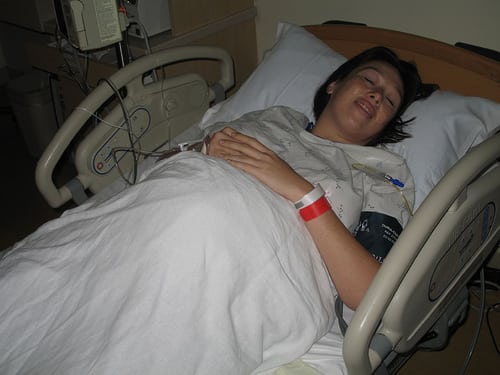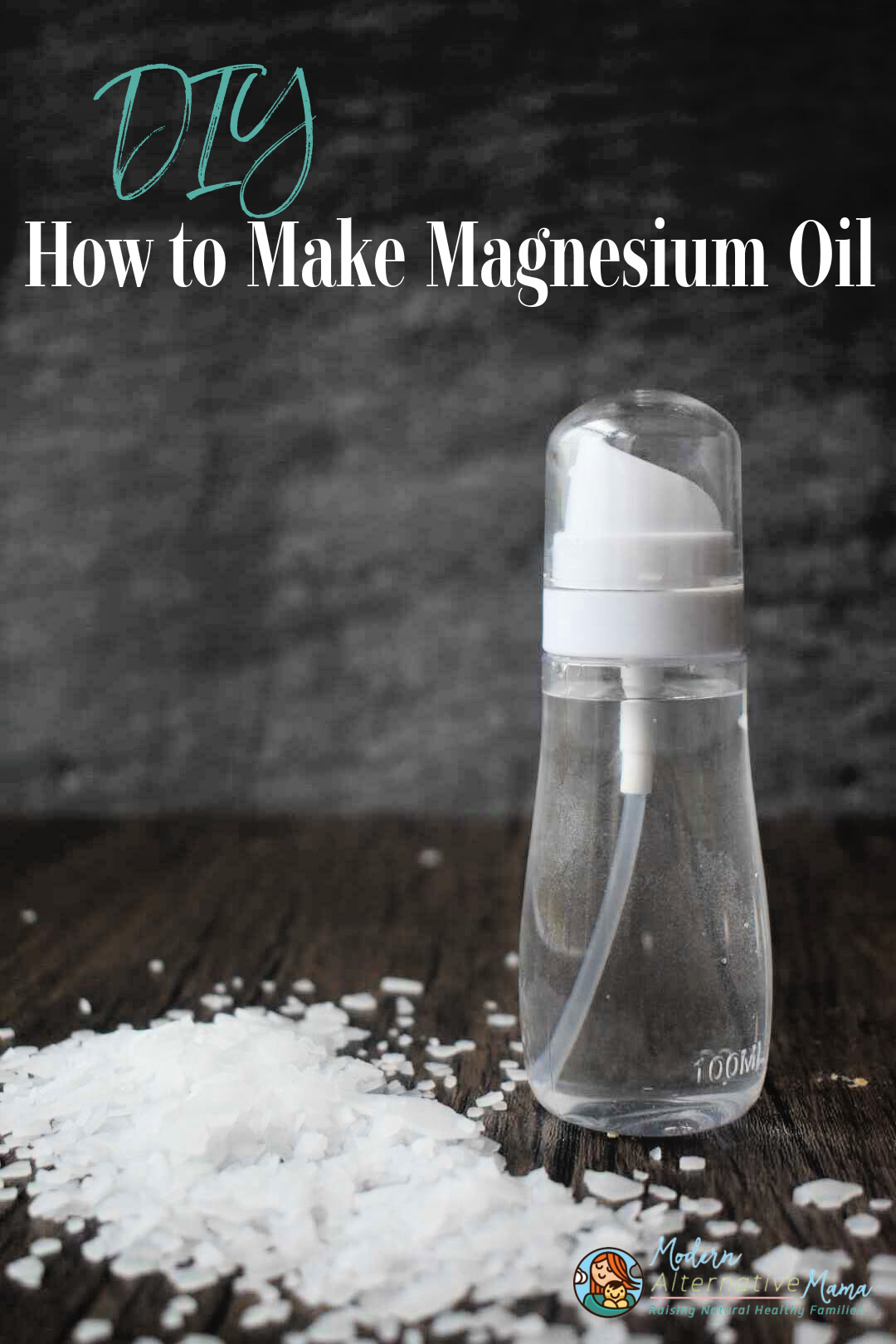 Image by Michael Bentley
Image by Michael Bentley
One of the most common procedures today is labor induction. Many women today choose to induce labor or end up with labor augmentation for “failure to progress.” Most of these inductions are not medically necessary. Since induction can come with serious risks, it’s important to choose it only when the benefits of inducing labor outweigh the risks.
Should Women Induce Labor?
There are certainly times when a woman does need to induce labor. These may include:
- The mother has developed pre-eclampsia
- The mother has developed cholestasis in pregnancy (liver issues)
- The baby is showing signs of distress (lack of movement, heart rate decels)
- There is another immediate concern with the mother or baby’s health
In these situations, which should be carefully evaluated by an OB, inducing labor may be the safest course of action. When the baby or the mother’s health is in danger, sometimes getting the baby out as quickly as possible is the best way to ensure the health of both.
When Shouldn’t Women Induce Labor?
While the reasons above are very valid reasons to induce labor, most reasons that women are given today are not medically necessary. Let’s take a look at some of these common reasons.
You Have Reached or Exceeded Your Due Date
As we talked about in the due date post, your due date may or may not even be accurate. Some babies need longer to grow and develop than others do. Simply reaching an arbitrary date is not a reason to induce labor, if mother and baby are doing well. If mom is feeling well, does not have high blood pressure, does not have glucose or protein in her urine, does not have any (or minimal) swelling in her legs, and baby’s active with a strong heart rate, there is no need to induce. This is the most common reason given, but in and of itself, it is not a medical reason to induce labor.
Your Baby Might Be Big
Ultrasound and other measurements prior to birth are accurate within about 2 lbs. Which means if they say “Your baby is going to weigh 9 lbs.,” your baby may weigh anywhere between 7 and 11 lbs. These measurements, in other words, are highly inaccurate. Also, unless the mother has gestational diabetes or some health condition that could cause problems with the baby’s development, weight, or mother’s ability to labor, bigger babies are not necessarily harder to deliver. In a healthy mother, her body will not grow babies bigger than she can safely deliver, if she is allowed to labor and deliver at her own pace.
When a mother goes into labor on her own, her body goes through some final changes that allow her ligaments to relax more, meaning she’s more able to stretch to deliver the baby. Birth positions can also affect mom’s ability to stretch and open. Women who are induced do not have the benefit of these extra hormones and often end up in less helpful birthing positions.
(And as a small note of interest, two days before my third baby was born, I knew that he could not grow any bigger and would have to come out. I couldn’t even use the bathroom easily anymore because he was squashing my bladder completely. I had never felt so full of baby with my other two. He was born at 8 lbs. 11 oz., a full 1.5 lbs. bigger than my other two. Still, I pushed for only a couple of minutes and barely tore, so I had no issues.)
Tired of Being Pregnant
Pregnancy is wonderful, but that doesn’t mean every moment is easy. Your body is stretched to its limits and you’re probably sore in your hips, back, and all kinds of other places. You probably are not sleeping well. Everything is more difficult when you are that pregnant. (A good chiropractor can help with some of that pain and the sleeping difficulties, though.)
Some well-meaning doctors will suggest inducing around 38 or 39 weeks because of this discomfort. If these discomforts are normal pregnancy-related things, then inducing is not the right solution. (Try warm baths, massage, a chiropractor, rest, light exercise, etc. instead.) If these discomforts are actually above and beyond, and indicative of a problem, see above: an induction may be necessary. For most women, though, the discomforts are just that. And remember, they’ll go away very soon after your baby is born! This time is short. Treasure the last few days or weeks of your baby moving within you, and give yourself permission to move at a slower pace. The longer babies stay inside (assuming good health for the mother and baby), the better.
Previous C-Section
Some women who are trying for a VBAC (Vaginal Birth After Cesearean) are told that they should be induced. This is usually so they are in a hospital for monitoring during their labor, just in case anything goes wrong and a repeat c-section is needed. However, the use of Pitocin in women with a previous c-section actually increases the likelihood of uterine rupture!
Convenience of the Doctor
This is the worst possible reason to induce, ever. It does not matter if your doctor is going on vacation next week when you will be 39 weeks pregnant, if your doctor has special clinic hours that he must get to, or if your doctor prefers not to be called away from home at 1 AM on a Saturday morning or because it’s a holiday. (If you don’t want to work odd hours, don’t work with pregnant women!)
It does not matter if your doctor is “available” for the birth or not. Most doctors are not there throughout labor anyway, they just show up to catch. Any doctor can do that. Rushing your baby or your body is not necessary or healthy.
Personal Convenience
I’m sure some of you are going to get upset with me for this, but personal convenience is also not a reason to induce labor. Some women want to ensure than their husbands can be off work, or their parents can be in town. In the vast majority of these cases, arrangements can be made so that things work out okay without having to schedule an induction for a non-medical reason. (I even know one woman who flew a photographer friend in from California — she lives in Ohio — to be there for her birth. She did not induce and the baby’s own timing worked out perfectly and the photographer was there!)
The reason personal convenience is not a reason to induce is because induction comes with serious risks. Those risks are typically not worth any convenience that may be gained by scheduling baby’s birthday in advance.
What are the Risks of Induction?
Sadly, downplaying the risks of induction are common, with the lack of being informed. Everything is a risk-benefit analysis, and while, in the cases of maternal or fetal distress, the need to get the baby out will probably outweigh any of these risks, in “convenience” circumstances they likely will not.
Risks include:
- Low heart rate/diminished oxygen supply to the baby
- Very strong/unmanageable contractions
- Premature birth (if dates are suspect)
- Breathing problems in the baby after birth (in a spontaneous labor, there are chemical changes that occur that finish maturing the lungs in the hours prior to labor)
- Cord prolapse
- C-section
- Use of vacuum and/or forceps
- Prolonged labor
- Uterine rupture
- Hemorrhage
- Increased likelihood of learning disabilities in babies born prior to 39 weeks
- Constant fetal monitoring/unable to move around
These are very serious risks. Inductions often lead to a cascade of interventions. A C-section is common due to women’s bodyies not being “ready”. C-sections are another topic entirely, of course.
When thinking about induction, your doctor should discuss all of these risks with you, as well as any potential benefit in your situation. Consider making a choice on what will be safest and healthiest for you and your baby.
While we are not here to judge women based on the choices they make in pregnancy and birth, we do strongly believe that women need to have all the information before making a choice. It is not a real ‘choice’ to induce labor if you are unaware of the associated risks. If you are aware and feel comfortable assuming those risks, whatever the reason for choosing induction — then that is your choice.






Great post! I’m almost at 36 weeks and feel like I can’t stress enough how much I do NOT want to be induced (to anyone who will listen). In my opinion, inducing labor just isn’t the way God intended us to give birth. And if God designed my body to achieve anything in this lifetime, it’s to help bring forth life!
I have had five children. I was induced with the fourth for a non-medical reason. It sucked! It hurt way worse than the natural labors that I have had. In addition, I had to lay in bed most of the time and they wanted to constantly monitor me. I wouldn’t ever choose an induction again if I could avoid it.
I totally agree with your article. I not only agree with not inducing labor unless there is a valid medical reason (I have friends who have had to for good reasons) but it is also a very unnatural labor that is intense and extremely painful. My sister was induced twice just because she went over her due date. Since it happened twice her body probably just needed extra time to prepare for labor or her due date was incorrect since every woman’s cycle is different. Another point I would like to add is the doctor who decides to break your water to speed things up once you are in labor. It happened to me. The doctor did not warn me that it would make the contractions unbearable and nonstop while not speeding things up at all. That is another thing they need to warn women about. My water would have broke when it needed to. I am due in less than two weeks and will not let the doctors interfere unless there is a good medical reason. I believe in as natural of a birth as possible since God did design our bodies to give birth.
I just want to say that the induction for VBAC’s isn’t actually true. There are of course Dr’s who will induce VBAC’s (which I find to be better then just going for a repeat c-section…after 42 weeks of course) but most Dr’s will not induce unless they have to and many Dr’s do not induce at all for VBAC’s. I have never heard of a Dr who wanted to induce just so you were at the hospital.
Just wanted to add in my two cents.
Loved this article! I hope it will change some perspectives out there….
If you have never heard of a doc inducing because is was convenient for him…get to know some L&D nurses….there are horrors abound ..episotmies to speed things up…sorry but thesthings do happen..
I had to be induced at 39 weeks to gestational hypertension. We never made it to pre-eclampsia, but the longer my blood pressure stayed high, the higher the risk of heart attack, my daughter dying, etc.
I’m so very thankful that my doctor is conscientious of using as little medicine and interventions as possible. She hates inducing and really wasn’t happy about mine, but we knew in this case, it was for the best.
I’m sure that with some other doctor I would have had her taken even earlier!!
When I went in, I had pitocin once my cervix was “ripened” with cytotec (a small pill they put near the cervix). The pit didn’t bother me, but once they upped the dose AND broke my water, it was unbearable. I had wanted to try for a natural, but due to the extreme pain from the pit, my heartrate and the baby’s was way too high to continue without an epidural…the most blessed thing I received that day (other than my daughter)!! Almost immediately, our heart rates went back to a safe range.
I wish I had been able to have had her naturally, but I am so glad that I was able to at least get her here safely with no negative side effects.
Thanks for the timely post… I’ll be 41 weeks tomorrow and although I’ve firmly settled on not inducing (at least not medically) unless it becomes necessary, I can’t help but feel anxious. This is my second baby (my first came a few days before her “due date”) and if another week goes by I’ll have to go get an ultrasound and begin monitoring more and that really makes me stressed when I think about it (which I know is not good for me or the baby). I felt like I was mentally prepared for the possibility of going “overdue” but emotionally, or hormonally, or whatever… it’s really wearing me out! I know it’s best to wait and let him/her come when she’s ready, but boy will I be relieved when that time finally comes. Anyway, thanks again for the post.
I just delivered my second water-birth baby 5 weeks ago. She was three weeks “late.” I absolutely did not want to be induced, absent a problem with me or the baby, and my midwife and her supervising ob were very supportive. I had believed my due date to be off by about a week anyway, and when I was 20 weeks pregnant or so, I had an ultrasound and was told that my baby was measuring “small” for her gestational age…about 8 days small, per their calculations. This led to additional ultrasounds, even though I knew that my due date was a week off. I am 6’1 and my husband 6’4, and my first baby was 8 lbs 7 oz and 22 inches long. I knew this baby would not be small, just that the due date was wrong. So when my due “date” came and went with no baby, and then another week and even another passed, I knew everything was ok. I did do the non-stress tests (two of them) and baby was completely fine. I went into labor naturally, and at my calculation, at 41 weeks 5 days. and my baby was a healthy 9.1 lbs!! Had I been with a traditional practice, I know there would have been significant pressure to induce, but because I allowed my body to do it naturally, my labor was very fast (I got to the hospital at 8cm and was completely oblivious that my labor had progressed so quickly! I felt great for being that far along!) and I had the second water-birth I’d intended! I would highly suggest that women consider their options and don’t let anyone pressure an induction!
On an unrelated side-note, there is a new tv show on TLC called HIgh School Moms. This one young mother went in for her 39 (?) week appointment and was told that she was being induced because the baby was over 9lbs. The baby was born that day at just over 7 lbs. I think there is way too much emphasis on ultrasound reliability!
Great article! Women definitely need to be educated on the effects of induction. After being induced with my first I can say I absolutely agree induction should be avoided! I was one of the “absolutely do not want an induction unless medically necessary” moms. At 38 weeks with my first baby, my fluid levels had dropped very low. My doctor was thankfully naturally-minded and gave me one more week to carry my daughter and try to get my fluid levels up (especially since fluid-levels are rather difficult to actually determine). As I understand, fluid levels are similar to birth-weight in that they are hard to accurately determine via ultrasound. I drank as much water as possible – but at my 39 week check-up the levels were three points lower. At that point my doctor recommended that we induce and I took her advice after weighing the risks versus the benefits. I was induced at 10am on a Friday with Pitocin. I was still able to get up and move around during contractions – using a birth ball, sitting in a chair, standing up and laying down when necessary, though it was difficult being hooked up to IV. I labored without much change in dialation for 14 hours. It was difficult labor – very intense through most of the time. I was determined not to use any pain medication, though I asked for them several times after the labor kept going and I reached exhaustion. The pain was intense, and the length of the labor was much longer than I had anticipated, but I really wanted to give my baby the best start possible, and decided to get through it as naturally as I could at this point – refusing an epidural or any other pain killers. I’m glad I made my final decision to refuse pain killers then, because it was shortly after that when the HARD labor started (around midnight on Friday). After this point my body was trying to push, though I was still only dialated a 6. It was the longest 7 hours of my life. When the time finally came to push I was so relieved that pushing didn’t even hurt and only lasted 20 minutes. Thankfully my daughter’s heart rate had stayed steady throughout the entire labor – and she was born healthy and pink at 6:56am on Saturday. I feel like my induction story went nearly “picture perfect” and yet it was still so unbearable. There were so many interventions that could have dominoed down just because my labor was induced and my body wasn’t ready to birth yet. Thankfully the worst side effect I had was very hard and long labor and my baby was born healthy and delivered naturally. I’m due with my second baby in February and if induction is suggested, it will take a lot more to convince me this time!
Thanks for the post. I teach prenatal yoga and studying to be a labor dula while pregnant with my second. I encourage my students to use a less medicated natural method when approaching their labors. I’ve had many students have successful spontaneous onset of labor and deliver naturally or with delayed epidurals. Lately though… I had a student who was 40 and her doctors stated they were inducing her at 39 weeks for no other reason besides her age. I asked if there we concerns for baby or her health for continuing to her 40th week or maybe 42 weeks…. And my student said no – just my age. So sure enough they induced her and sure enough she “failed to progress” past 5cm and did an “emergency” c-section bc mom had an infection. This is the 2nd student I’ve had who ended up with what was probably an unnecessary cesarian all bc doctors are impatient. OB’s are also surgeons … Most have no problem cutting you open. Even though babies end up born either way – it steals something away from the mother… That saddens me. I know not all inductions result in cesarian but it sure seems more common than not.
hi, i’m 23 with my 3rd child due in 2 weeks. from 32weeks i have been having serious issues with my fluid level. last friday, my fluid was measuring 30.3. my level never goes down but either stays the same or increases. my 1st two pregnancies i’ve had not one problem. i am sooo uncomfortable. cant sleep, loss of appitie half the time, serious problems breating, my vagina is in servere pain all the time, i cant walk, sit, move a little without it hurting. i have tried warm baths, everything, nothing seems to be of help. i am wondering, i have stress tests every week and ultrasounds to keep an eye out for my level and baby. baby is absolutely perfect, weighing a little over 7 lbs right now, think my doctor would take me at 38 if i talked to him? i am really worried about my level. like i said i have never had this problem.. i am due for a c-section the 14th of november.
Women who have a medically necessary induction should feel good about that decision. If I ever needed one, then I would get it. Right now I’m pregnant with my third baby, and this is my first time ever diagnosed with gestational diabetes. Through research, I have found international studies that say inducing at 39 weeks when you have this condition actually reduces C-section risk. Since I haven’t had a C-section yet, this is promising. I tend to do outside research regarding my health, but I am not one to automatically assume the worst of all doctors and question them to the point of taking on unnecessary risks under the guise of “knowing myself best.” I find that personality type abounds when discussing and researching birth in particular. It makes me rather dubious of both sides of the table and left to piece things together as they fit me and my case best. That’s how it should be, really, but it’s unpleasant to wade through all of the “passion” and get to the material.
I haven
[…] Again, it’s perfectly safe and healthy for a baby to go past their due date. There’s actually less risk for baby as long as mom and baby are in good health. There are many benefits of waiting for spontaneous labor. […]